Interview With Dmitry Chumak
Author:
Unlock your full potential by engaging with our experts and community! Have questions about your fitness journey or looking for expert advice on weightlifting techniques? Don’t hesitate — leave a comment below and Sergii Putsov will provide a personalized answer and insights to help you reach your goals.
Torokhtiy is reader-supported. Some links are affiliate links, and we may earn a commission at no extra cost to you. See our disclosure page for details.
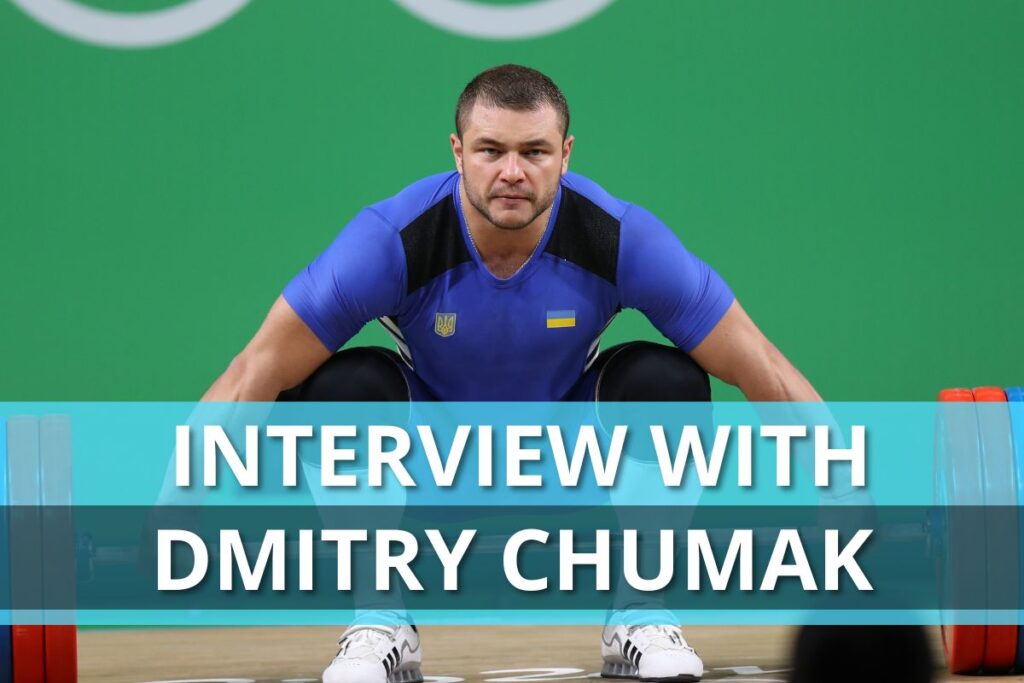
Nowadays, Dmitry Chumak is the leader of the Ukrainian weightlifting team and top athlete in the IWF world ranking. Read about his interesting path in sports, failures, victories and dreams in this article.
– Where did weightlifting come from in your life?
– I absolutely accidentally went to the gym, I was 13 years old, my classmates and I decided to gain some muscles. Remembering those times, the first thing that comes to my mind are those Soviet phones with funny cords that we used to call each other so that all friends would meet near the store and go to the training together.
– Tell us about your first gym.
You may like it:
- Detailed Olympic Weightlifting Program For Beginners
- 12-Week Weightlifting Program For Women (Detailed Example)
- Create Your Olympic Weightlifting Program (Examples Included)
– I come from a small town – Skadovsk. Our gym was 98.5% homemade. There was only an old power station that could be considered real equipment. There were only two platforms and also home-made and rusty barbells at that gym.
But it was very cool due to the spirit of true sports lovers that could be felt there. People who really loved sports went to that gym. And nobody cared that if it was -10 outdoors and -5 at the gym … After 15 years of training, I understand that my first coach, Petrichenko Sergey Mikhailovich, was actually very cool. He knew how to create a sports atmosphere and instl true love for it! We jumped a lot, ran, worked on our abs, played football and our trainings were very interesting and fun. But this was not pampering – it was a real training process. What is frustrating is that now instead of the gym there is a bank. There are not enough banks in Skadovsk (sad sarcasm).
Follow us!
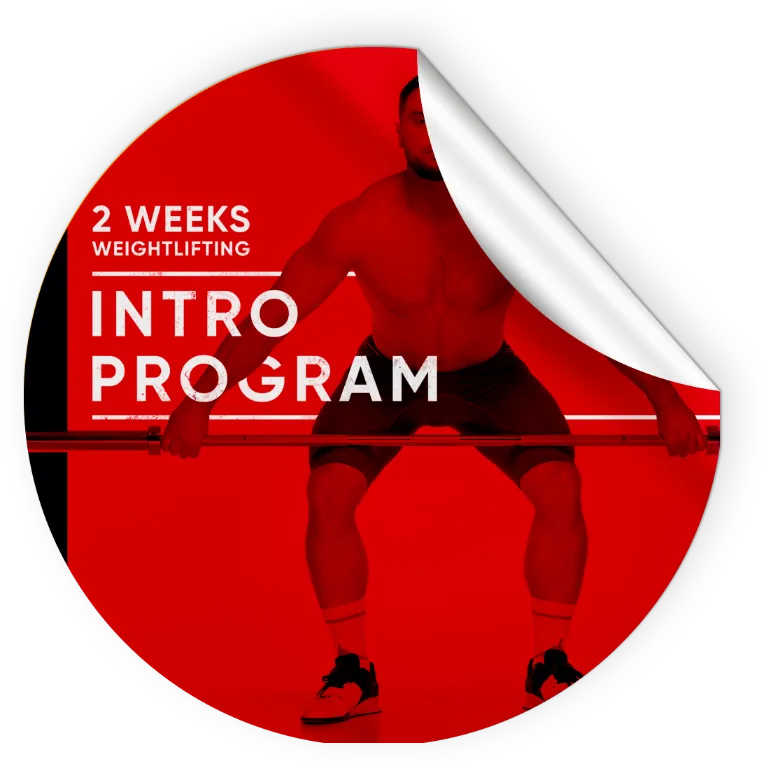
Free!
Get a 2-week Weightlifting Program as a bonus for the subscription to kickstart your training plan!

Free!
– How long have your trainings been like this?
– For at least a year. For about a month or two I could not remember the difference between a snatch and clean. And some six months later it turned out that the bar should be taken differently – . The coach taught us new elements very slowly and smoothly. Now it is often possible to see cases when the athlete immediately begins to learn the most complicated technical nuances and super precise exercises execution is demanded from him. This is all cool, but it seems to me that this does not instill love. Because if I came to the gym without knowing anything about this sport and stayed in it, this implies that the coach instilled this love in me. It is important to understand that the World Champion trains as a world champion. A beginner needs to train like a beginner. Each has one´s own tasks.
– How long does it take to systematically engage a beginner who really wants to become an advanced athlete?
– I think at least a year or two or three years – it depends on the athlete´s age, training conditions, abilities. If a person systematically trains, then in a year he will be an amateur. It takes years to become a professional. It’s my opinion.
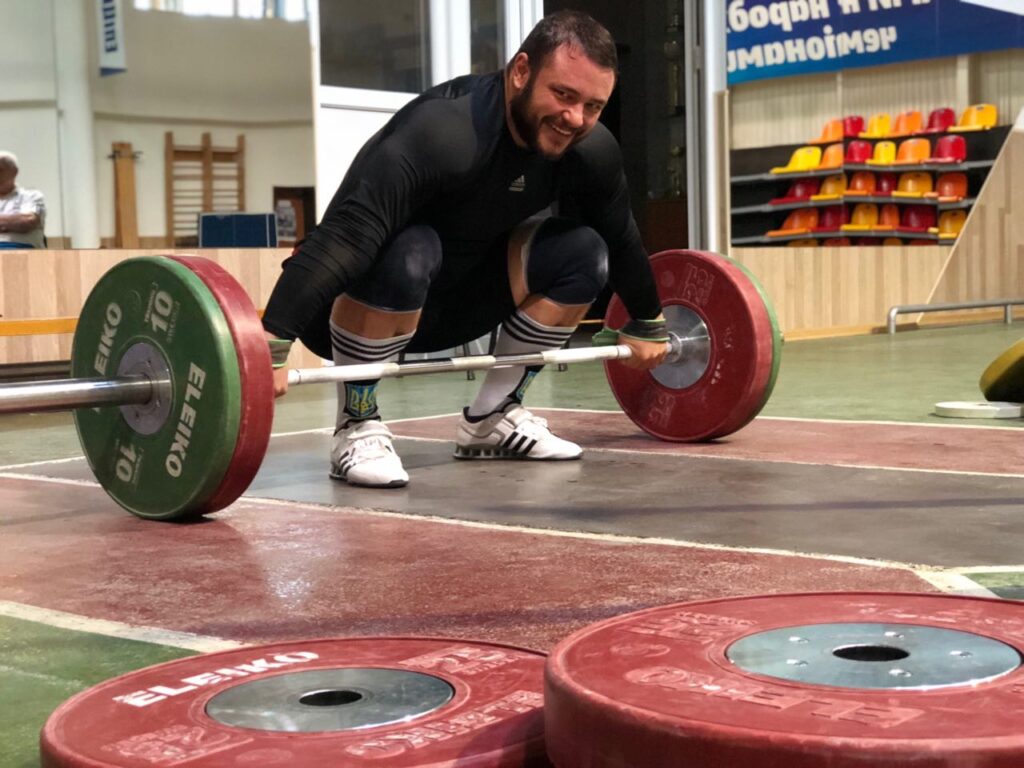
– It is very good that we heard it from you. Without thinking too much: the first success in sports? When did you realize it was what you wanted?
– For some reason, two moments come to my mind. The first is my very first medal, the very first competition that I won, it was a category up to 41 kg., I weighed 38 kg., and I lifted 35 kg. I had no special shoes for weightlifting at that time, so I was wearing shoes: yes, ordinary black shoes. Then the coach presented me with old torn weightlifting shoes. I was probably the fifth who trained wearing them, but for me they were like some super equipment. And the second event was the European Cadet Championship in Italy, then I got a bronze in snatch. I was already 17 years old and I was a member of the national team. It was a big deal for me!
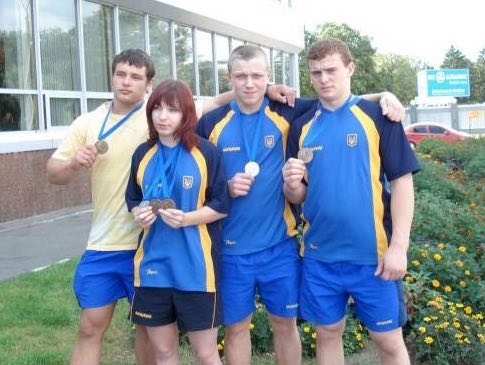
– Then you began to grow rapidly. Can you mention that period?
– This is a very huge period, and I trained a lot, but for some reason I was always in the shade. In the category up to 85 kg, I lifted 155 in snatch and 190 in clean. Today, after 10 years, this is not the weakest result. But I remained in the shadow for a very long time. I was not allowed to compete and now I can’t understand why considering the fact I was working too hard all that time.
2012 comes, I am 21 years old, I get a scholarship that ends in a week, and I decide to work part-time at a nightclub. I stayed there for two years, at the entrance. Once a fight took place, where I tried to calm down clubbers and accidentally met a person from one company, and he invited me to Kiev to work as a bodyguard driver and offered me a $ 1,000 salary. I made a decision and moved to Kiev. For a year and 4 months I worked in Kiev and did not train, lost weight from 90 to 82 kg. The daily routine was stupid: wake up at 6 am 7 days a week and come back home at midnight. I saw the promised salary only partially, because instead of 1000 I was paid only 300. As a result, I earned only on food and room rental.
– How did you manage to get back to the sport?
– One day, the coach called me and invited me to visit the Olympic base near Kiev. There I met Denis Gottfried (at that time the head coach of the women’s team) and he suggested me to come to evenings training. We started talking more, he was very surprised when he found out that my best snatch was 160 kg. Denis literally persuaded me to return to serious training. And I decided to take a chance. I felt much enthusiasm.
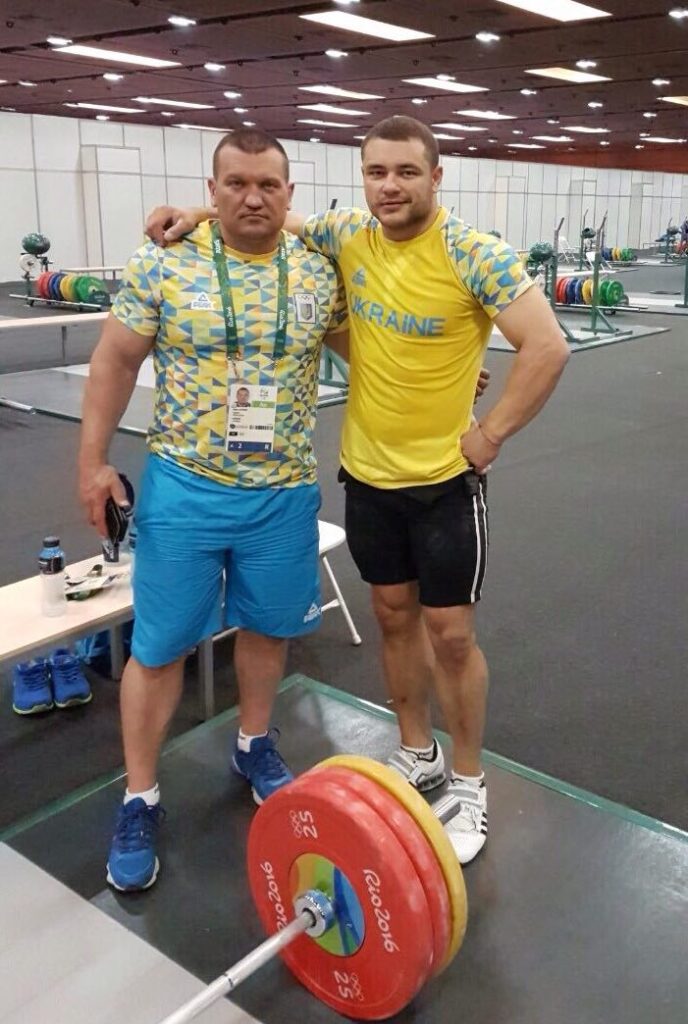
For about a year and a half I spent nights on a mattress at the gym and ate the food that remained in the dining room after the women’s team. I reached the result of 175 kg in snatch and 205 kg in the clean and jerk and in the first competitions I broke my elbow: 17 stitches, a pretty serious injury. And again, a year of rehabilitation … that´s the story.
– You and Gottfried trained in a very specific way. Was it a special program prepared for you? It was far from classical, did it suit you?
– It was a completely experimental thing. There were three experiments. There was a moment when I trained to my limit with no repetitions, but that technique was about nothing …
Second technique: we did several waves to the 90% zone – it gave the result in training. But such a technique involves high restorative procedures, the massage therapist should have been available constantly. In other words, this technique requires approaches that are practically impossible in Ukraine. It is very difficult. You will always be tired. But this technique did not work in the competition – I could not realize myself.
The third technique is more classical. One wave, more repetitions. It was the shortest regarding teamwork as we started having some misunderstandings. For me, Denis Gottfried was like a successful friend. A coach is something different. When a trainer stops growing, this is not always good.
– So you did not have enough of his coaching support?
– I think so. After the Olympics, we took separate ways. We did not quarrel, it just happened.
– Why was there no success in Rio 2016?
– Because there were a lot of experiments. The Olympic year was a transition from injury to injury: either the thigh or the lower back – I was physically unable to walk 2 weeks before the performance. Now, after a while, I understand that all these points were very wrong. But, on the other hand, it was an instructive experience.
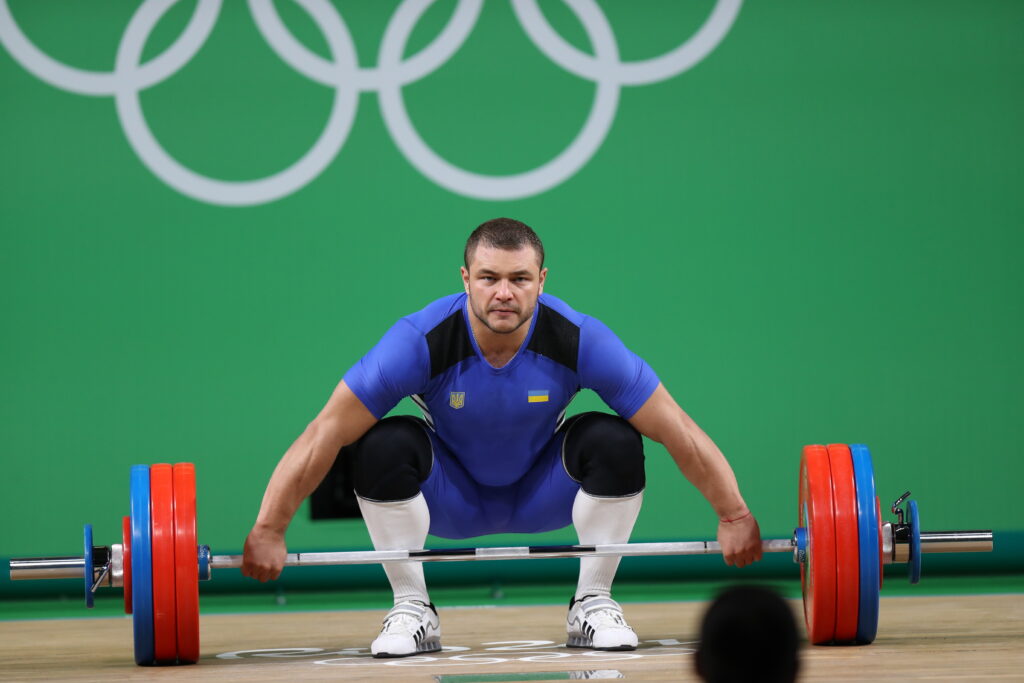
– Now you have a new coach – the legendary Mikhail Matsekha. As I understand it, now you have the opportunity to compare, don´t you?
– Matsekha is a unique trainer. I have a feeling that I am not training at all. And I lift the same kilograms as before. He trains in such an interesting way that you are never tired and much less injured. I became calmer. Matsekha pays great attention to psychology, but he does it very positively. I often pay attention to how many other coaches lack this psychological preparation with their athletes. Perhaps they think that this is not so important, and some, on the contrary, emotionally suppress their athletes. Although it seems to me that when one is in high spirits, the trainings are less traumatic.
– Does Mikhail Matsekha manage to inspire you in a sporting way?
– Yes. And he does not give any “great speeches.” He was just born for this, he has talent. He makes it easy to understand that you can become a world champion. And you end up believing in that.
– What happened at the 2018 World Cup in Ashgabat? Why didn’t you lift the last set in the clean and jerk that could give you a gold medal?
– First, I did not know that set could give me the World Cup gold medal. I lost in snatch, became the third and therefore did not understand the course of the competition. Besides, I simply hurried up. I did the analysis later – I simply made a mistake. No one is to blame.
– This Olympic cycle has brought you many more medals. What is your mood for preparing for Tokyo?
– Preparation for Tokyo will be the most important one in my life. I really focus on this. It will begin in December this year.
– Tell me, now you deal with online seminars. What place does this take in your life?
– It was a random thing. A friend from New York invited me for a seminar. I absolutely did not understand how to do it all. The most interesting thing is that it turned out very easy. I earned $ 4,000 and it stopped me!!! I realized that people deserved quality. We need a program, good English and organization and a systematic approach. I temporarily postponed this topic, because I want to present my name in the field of educational fitness at a decent level.
– The best weight you’ve ever lifted?
– 190 kg – snatch, 235 kg – jerk , 300 kg – squats, 250 kg – clean.
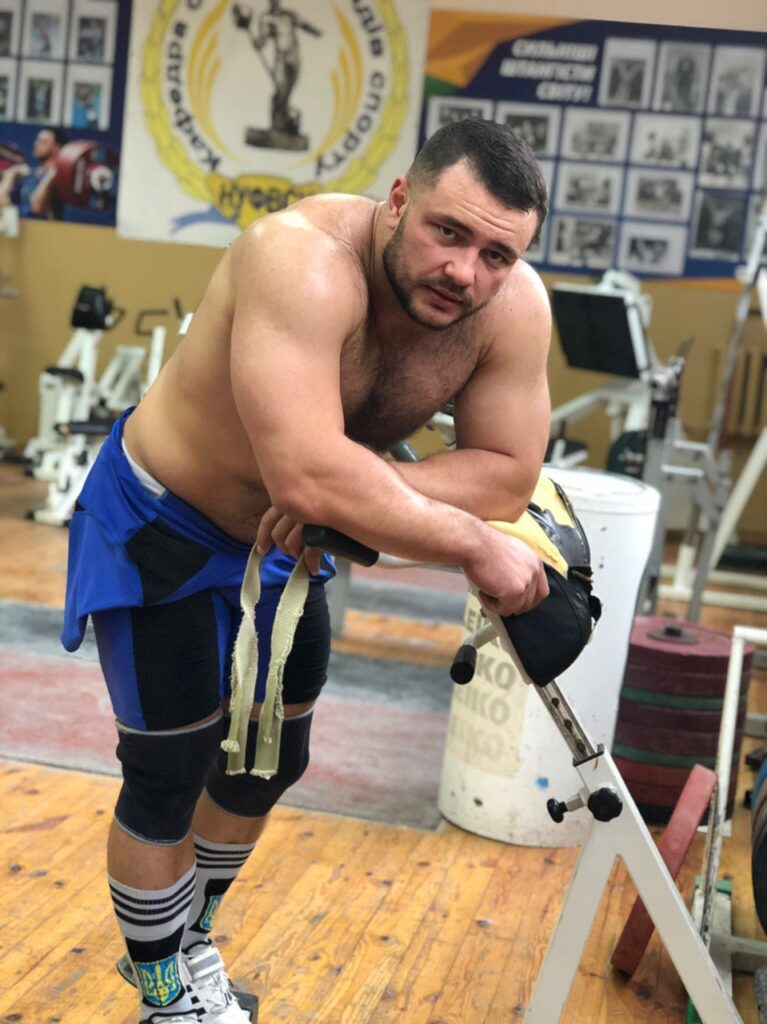
– Favorite exercise?
– Massage)
– Dream kilograms and dream pedestals?
– I will answer in stages. At the World Championships in Thailand, I think – 410 kg in total. Now I see only this goal. It is necessary to set phased tasks.
– Weightlifting advice from Dmitry Chumak.
– First, take your time: the result takes time and patience! Second, in order to succeed, you need to be ready to work hard! Third, discipline is very important in terms of sleep, nutrition and recovery.
P.s. You can watch Chumak’s preparation for World Championships 2019 in our video below.
You might be interested in:
Why Trust Us?
With over 20 years in Olympic weightlifting, strength training, nutrition coaching, and general fitness our team does its best to provide the audience with ultimate support and meet the needs and requirements of advanced athletes and professional lifters, as well as people who strive to open new opportunities and develop their physical capabilities with us.
By trusting the recommendations of our certified experts in coaching, nutrition, and sports training programming, as well as scientific consultants, and physiotherapists, we provide you with thorough, well-considered, and scientifically proven content. All the information given in the articles concerning workout programming, separate exercises, and athletic performance, in general, is based on verified data.
The product testing process is described in more detail here.
Author: Sergii Putsov
Head of Sport Science, PhD
Best Results: Snatch – 165 kg,
C&J – 200 kg
Sergii Putsov, Ph.D., is a former professional weightlifter and National team member, achieving multiple medals in the 94 kg weight category at national competitions. With a Master’s degree in “Olympic & Professional Sport Training” and a Sport Science Ph.D. from the International Olympic Academy, Greece, Sergii now leads as the Head of Sport Science. He specializes in designing training programs, writing insightful blog articles, providing live commentary at international weightlifting events, and conducting educational seminars worldwide alongside Olympic weightlifting expert Oleksiy Torokhtiy.



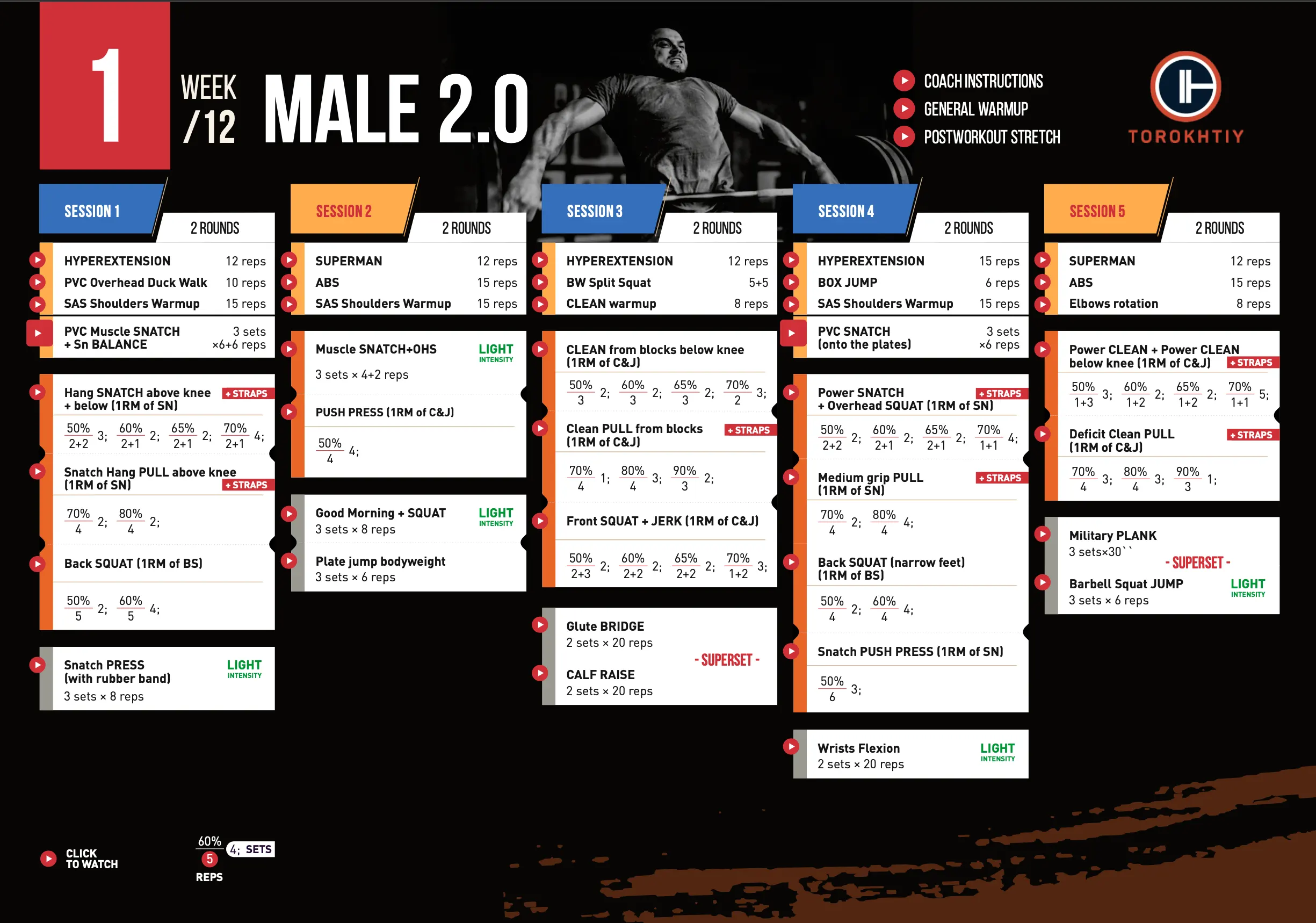
Still have questions after reading our article? Unlock your full potential by engaging with our experts and community! Don’t hesitate — leave a comment below and Sergii Putsov will provide a personalized answer and insights to help you reach your goals.